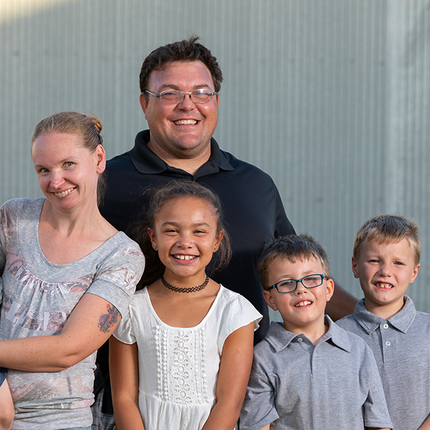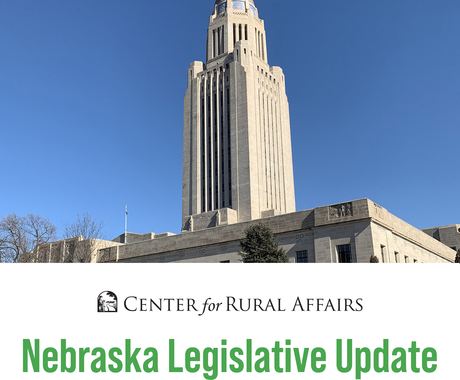By Corbin Delgado, former staff member
For one woman in Denton, Nebraska, health care worries have been a part of her life for almost a decade. Melissa Smith is a mother of five and a small business owner. Along with her husband, Tyler, they own and operate Hillside Events, a wedding venue located on their family property outside of town.
On Nov. 6, Nebraska residents will consider Initiative 427, or Medicaid expansion. At the Center for Rural Affairs, advocating for rural health care to curb the worries of people like Melissa and Tyler, is an important pillar of our work.
A couple years ago, Tyler was laid off from a job where his health insurance covered the whole family. During this time, Melissa and Tyler fell into the coverage gap and had to take out loans both privately and against their retirement plan. To this day, their family lives with the financial consequences of trying to survive without health insurance.
Currently, the couple narrowly qualifies for subsidies offered under the Affordable Care Act. While they would like to focus more on their family business, they know that if Tyler were to step back from his current position to part-time, they would fall squarely back into the coverage gap. This has left Melissa and Tyler in a situation where they have put off business renovations and improvements in favor of secure health insurance for themselves and their family.
For parents who live on the edge of the coverage gap, health care access defines almost all of life’s decisions. Access to coverage defines where they send their children to college, how much they can allow themselves to work, and whether or not they can afford the time it takes to invest in a small business.
If Nebraska had expanded Medicaid after the passage of the Affordable Care Act, Melissa said they would have been more financially stable and could have built up their business. More importantly, their foster daughter, Tiauna, would have had coverage when she turned 19. Instead, Tiauna fell into the coverage gap.
“Folks don’t understand how expensive it is not to have health care,” Melissa said. “If Nebraska expanded Medicaid, it would give students and new small business owners peace of mind knowing that health care wouldn’t be a barrier to them pursuing their dreams and goals.”
The story of Melissa and her family is just one example of many who teeter on the edge of the coverage gap. They are one part of the 90,000 working Nebraskans that Initiative 427 would help in pursuing their dreams.
Photo of Melissa Smith and her family courtesy of Wildfire Contact.




